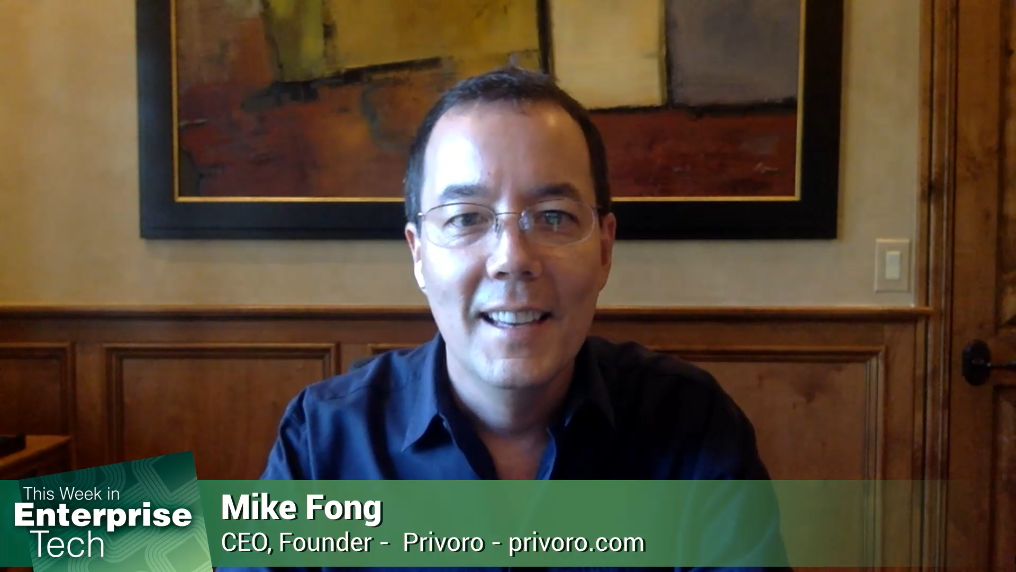Mike Fong featured on TWiET
Privoro founder and CEO Mike Fong was recently featured on an episode of “This Week in Enterprise Tech” with hosts Lou Maresca, Brian Chee and Curtis Franklin. You can see Mike’s interview in the video above.
Mike had much to say about the mobile security landscape and Privoro’s position within it. Below are two of the highlights of the conversation.
On the “hidden cyberwar” involving smartphones:
This is sort of the hidden cyberwar that’s going on continuously between nation-states, and just on the commercial side, there was a ton of coverage earlier in the year on Pegasus. You know, 50,000 potential targets, and of course they’re one of multiple companies that develop this type of commercial malware for mobile phones, and a couple of those were just banned last week or sanctioned by the US government. And of course, every major nation-state – I think it’s been leaked, you know, so I think it’s safe to say that – for obvious reasons, phones are now the primary compute device on the planet, so there’s an enormous incentive to target those devices, and, you know, the big countries that have their own capabilities are not going to leverage a commercial software package like NSO. You know, Russia, China, the United States, they’re going to develop their own exploits – they have those capabilities. So I think we’re seeing a lot of that.
On the macro trends guiding Privoro’s products:
Zoom out for a second, and there’s a couple of macro trends that we look at when we think about positioning the company. So number one is that our view is security is fundamentally broken. There’s a combination of reasons for it, but largely it’s the extraordinary size of the attack surface, and then if you think about all the layers, you know, very simplistically: apps on top of operating system on top of firmware on top of chips. Every layer is attacked. Endless cat-and-mouse game. Every industry’s become a technology industry. And those are the things that drive zero trust. People are accepting the fact that it’s hard to keep people out. So find ‘em fast, continuously authenticate, you know, prevent lateral movement. And this whole thing is made worse by what you guys talked about earlier, the pace of change on that massive attack surface is high, driven by the need to, you know, always roll out new features at lower cost. And so, until you can architecturally change that game, we’re going to have, I think, a repeat of what we’ve experienced. There’s literally thousands and thousands of security companies, and the way to change this game architecturally is you have to start in hardware, because one thing’s certain is that hard as it is to win the cat-and-mouse game at every layer, if someone attacks at a lower layer, they can bypass protections at the higher layer. So you have to create these foundations of trust in hardware at different control points in our overall IT infrastructure. We’re doing it at the edge. So imagine now for a second that, you know, with that backdrop, sort of big pillar sort of number one and two, combine that with data collection. So data is at the heart of the business models for the biggest companies in the world. It’s at the heart of machine learning. So the collection of data is not going to end. The incentives are too powerful. So the intersection of these things, you realize, okay, mobile devices are going to be designed to collect information because there’s a lot of value in that. How do you as an individual, or if you’re responsible for an enterprise or government, you know, manage all of that? And we’re aimed at giving people control over their data from a trusted device paired with the commercial device that you’re gonna be purchasing, and that sort of informs our roadmap.






